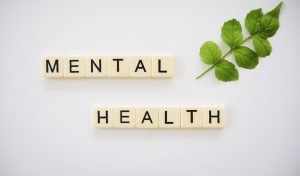
Obsessive-Compulsive Disorder (OCD) is a mental health condition characterized by persistent, unwanted thoughts (obsessions) and repetitive behaviors or mental acts (compulsions) that a person feels driven to perform. These obsessions and compulsions can significantly interfere with daily life, causing considerable distress and anxiety. While traditional treatments like Cognitive Behavioral Therapy (CBT) and medication are often effective, many individuals continue to seek alternative or complementary therapies. One such promising alternative is Cannabidiol, commonly known as CBD.
What is CBD?
CBD is a non-psychoactive compound found in cannabis plants. Unlike THC, the compound in cannabis that produces a “high,” CBD does not cause intoxication. It has gained popularity in recent years for its potential therapeutic effects, particularly in the realm of mental health. Research suggests that CBD may have anti-anxiety, anti-inflammatory, and neuroprotective properties, making it a potential candidate for the treatment of various psychiatric conditions, including OCD.
How CBD Works in the Brain
CBD interacts with the endocannabinoid system (ECS), a complex cell-signaling system in the body that plays a role in regulating a wide range of functions, including mood, sleep, appetite, and memory. The ECS comprises receptors, enzymes, and endocannabinoids. CBD is thought to influence the ECS by interacting with cannabinoid receptors, particularly CB1 and CB2 receptors, as well as other neurotransmitter systems such as serotonin and dopamine. This interaction may help modulate anxiety levels, reduce compulsive behaviors, and improve overall mental well-being.
CBD and Anxiety: The Connection
Research has shown that anxiety often plays a significant role in OCD. Many individuals with OCD experience heightened feelings of anxiety, which can exacerbate obsessions and compulsions. CBD’s potential to alleviate anxiety is one of its most well-documented effects. Several studies have demonstrated that CBD can reduce anxiety in both human and animal models. By potentially lowering anxiety levels, CBD may help lessen the severity of OCD symptoms, offering individuals a greater sense of control over their thoughts and actions.
Scientific Evidence Supporting CBD for OCD
While research specifically focusing on CBD and OCD is still in its early stages, preliminary findings are promising. A study published in the Journal of Psychopharmacology found that CBD could reduce compulsive behavior in animal models, suggesting its potential as a treatment for OCD. Additionally, anecdotal reports from individuals using CBD to manage their OCD symptoms indicate a reduction in anxiety and compulsive behaviors.
Another study published in Neurotherapeutics examined the effects of CBD on anxiety-related disorders, including OCD. The study concluded that CBD holds potential as a treatment for anxiety-related disorders, citing its anxiolytic and anti-compulsive properties. However, it emphasized the need for more rigorous clinical trials to establish CBD’s efficacy and safety in treating OCD specifically.
CBD Dosage and Administration
Determining the appropriate dosage of CBD for OCD can be challenging, as it varies depending on the individual’s body weight, metabolism, and the severity of symptoms. It’s crucial to start with a low dose and gradually increase it until the desired effects are achieved. CBD is available in various forms, including oils, capsules, edibles, and topical creams. For mental health conditions, oral consumption (oils or capsules) is often preferred due to its systemic effects.
It is essential to consult with a healthcare professional before starting CBD, especially if you are currently taking other medications or have existing health conditions. A healthcare provider can help guide you in finding the right dosage and monitor any potential interactions or side effects.
Potential Side Effects and Considerations
While CBD is generally considered safe, it is not without potential side effects. Some individuals may experience dry mouth, dizziness, changes in appetite, or fatigue. More serious side effects are rare but can occur, particularly when taken in high doses or in combination with other medications. It’s also important to source CBD from reputable manufacturers to ensure product quality and avoid contaminants.
Moreover, CBD is not a cure-all, and while it may help alleviate symptoms, it should not replace traditional treatments like therapy or medication unless advised by a healthcare professional. It is best used as a complementary treatment under professional supervision.
Personal Stories: Lived Experiences with CBD and OCD
Many individuals with OCD have turned to CBD as a complementary treatment and have reported positive experiences. For some, CBD has provided a sense of calm and reduced the intensity of their compulsions, allowing them to engage more fully in daily activities and therapy. Personal stories highlight the potential benefits of CBD, though they also underscore the importance of individual variability in response to treatment.
The Need for Further Research
While the current body of research is promising, more studies are needed to fully understand the effects of CBD on OCD. Rigorous clinical trials involving larger sample sizes are necessary to establish its efficacy, optimal dosages, and long-term safety. Researchers are also exploring how CBD interacts with other psychiatric medications, which could provide valuable insights for individuals considering CBD as part of their treatment plan.
Conclusion: A Promising Adjunct to Traditional Treatments
CBD offers a promising avenue for individuals seeking to manage OCD symptoms, particularly when traditional treatments fall short or cause undesirable side effects. Its potential to alleviate anxiety and reduce compulsive behaviors makes it an attractive option for many. However, it’s crucial to approach CBD with caution, keeping in mind that it should not replace conventional treatments without professional guidance.
As research continues to unfold, CBD’s role in mental health treatment will become clearer. For now, it remains a promising complementary tool that, when used responsibly, could unlock new potential for those living with OCD.
#ChatGPT assisted in the creation of this article.







